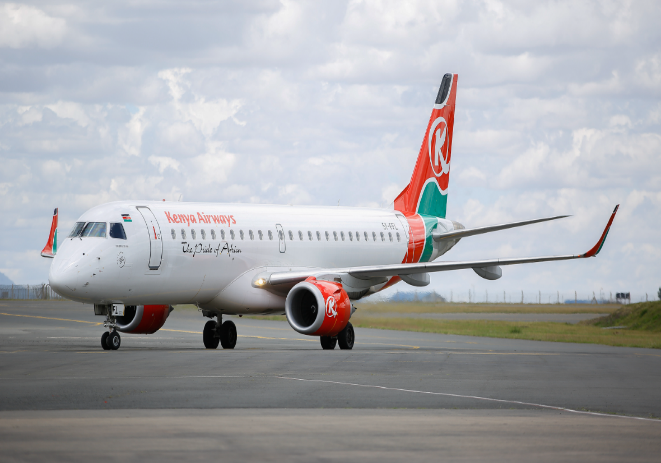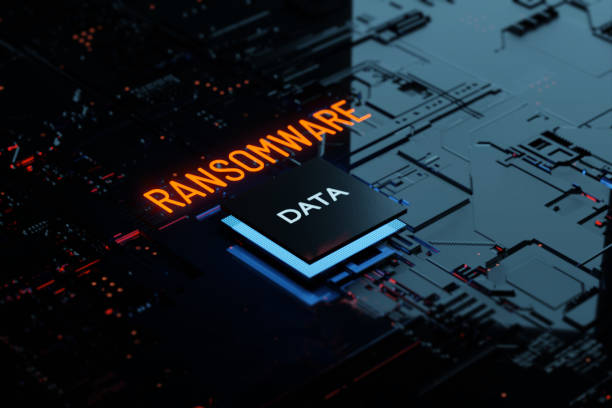
Top Five Lessons from the Kenya Airways (KQ) RANSOMWARE ATTACK
By
Angela Violet
Cybersecurity & IT Risks Associate (CITRA)
South-End Tech Limited

In a horrifying incident that shocked the entire aviation industry, Kenya Airways (KQ) on January 8, 2024, became a victim of a ransomware attack. This breach highlighted the continuing threat posed by cybercriminals in the digital age. As part of its commitment to transparency and privacy compliance, KQ immediately notified the Office of the Data Protection Commissioner (ODPC) of the breach.
On the fateful day of January 8, 2024, KQ’s digital infrastructure was compromised by a sophisticated ransomware attack, cybercriminals exploited vulnerabilities in the airline’s systems, encrypted important files, and demanded a hefty ransom to be released. The attack compromised confidential customer information such as identity documents, telephone numbers, investigation reports and email addresses.
Following the attack, Kenya Airways immediately initiated a contingency plan, cybersecurity experts were mobilized to investigate the breach, determine the extent of the damage, and take steps to contain and eliminate the threat. At the same time, KQ cooperated with law enforcement agencies and relevant authorities to assist in the investigation and gather information to track down the perpetrators. Recognizing the importance of transparency and compliance with data protection regulations, Kenya Airways immediately notified the Office of Data Protection Commission of the ransomware attack. This alignment is consistent with data breach reporting requirements and demonstrates KQ’s commitment to accountability and protecting customer data.
ODPC plays a key role in overseeing data protection and privacy regulations, following the KQ ransomware attack, ODPC worked closely with KQ to assess the impact on personal data and ensure KQ took the necessary steps to mitigate risk and protect the privacy of those affected. As KQ works tirelessly to recover from ransomware attacks, this incident is a stark reminder for organizations around the world to continue to strengthen their cybersecurity measure. Key safety measures include:
- Regular training and awareness programs: Educate employees on cybersecurity best practices and emphasize the importance of vigilance and caution when dealing with emails, attachments, and links.
- Advanced Threat Detection System:-Implement cutting-edge cybersecurity solutions that can detect and neutralize potential threats in real-time, minimizing the risk of a successful attack.
- Regular software updates and patch management: –Keep all software, including operating systems and security tools, up to date to address known vulnerabilities and minimize the risk of exploitation.
- Incident Response:-Develop and regularly update an incident response plan that outlines the steps to take in the event of a cybersecurity breach. This ensures a quick and coordinated response to minimize damage.
- Data encryption and backup strategy: Encrypt sensitive data and establish a robust backup system to enable quick recovery in the event of a ransomware attack. Test and update your backups regularly to ensure their effectiveness.
Beyond recovery, the KQ is focused on implementing additional layers of security, comprehensive cybersecurity training for employees, and improving incident response capabilities to better prepare for future threats. The recent ransomware attack on Kenya Airways is a wake-up call for businesses across all industries to prioritize cybersecurity and remain vigilant against evolving threats.
By engaging with regulators such as ODPC promptly, businesses can not only ensure compliance with Data Protection Regulations but also benefit from the expertise and advice available when dealing with the impact of a cyber incident. KQ and ODPC are working together to fight breaches and protect customer data, and their collaboration sets a precedent for effective cybersecurity governance and collaborative efforts in the face of digital threats.
Please do not hesitate to contact us for your Cybersecurity and Data Protection Solutions and Service needs on the telephone at +254115867309 +254721864169; +254740196519; +254115867309 or email.


